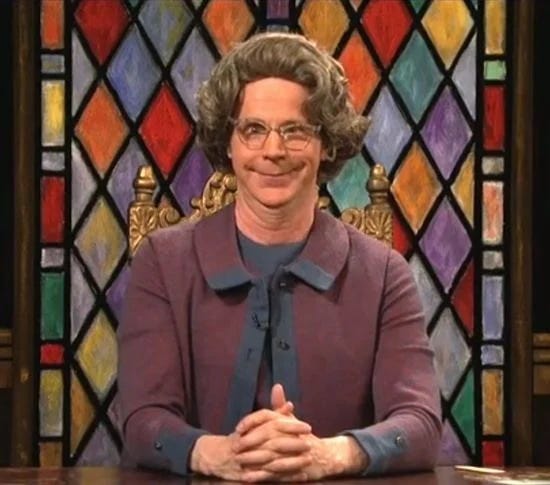I was ordained to the priesthood on the feast of St. Thomas the Doubter. I think it was God’s way of whispering a bit of free advice in my ear: “Don’t take yourself too seriously. And for God’s sake, don’t take what you think you know about Me too seriously, either! Dare to doubt!”
Many people believe that doubt is a deal breaker when it comes to religious faith. As they see it, persons of genuine faith are rock-solidly certain in their beliefs about God and God’s ways, no matter how unlikely, irrational, or even harmful those beliefs may strike others. For them, doubt is a crack in the tower of faith that, unattended, brings everything crashing down.
Popular as this view is — curiously, it’s one of the few things religious fundamentalists and militant atheists agree on — it makes a hash of both faith and doubt.
At its deepest level, faith isn’t an uncritical swallowing of this or that religious claim. Instead, it’s an attitude of radical openness, wonder, awe, trust, and gratitude, grounded in the intuition that there exists an ultimate reality we can call “God,” and that this reality is benevolent rather than indifferent or hostile. True, people of faith also embrace beliefs specific to their religious traditions, and those beliefs are important. But they’re second order efforts to make sense of the fundamental response of grateful wonder. As such, they’re always subject to re-examination.
If this sounds sacrilegious to you, it shouldn’t. St. Paul himself noted that whenever we think about God, we do so only through a glass darkly. Augustine put it even more forcefully. Si comprehendis, non est Deus: whenever we suppose we have God pegged down, it’s a sure sign that we don’t. In the 12th century, the theologian Abelard’s catchphrase was dubitando ad veritatem venimus: “through doubting we come to the truth.” And Thomas Aquinas, surely one of the most orthodox thinkers of all time, cautioned that anything we say about God is necessarily analogous, not descriptive. When it comes to God, he said, our language simply doesn’t stretch far enough. God is unwordable Mystery.
The takeaway lesson? Whatever we think we know about God falls way short of the Real McCoy.
The trouble is that many of us resist uncertainty when it comes to religious beliefs, even if that means repudiating the ultimately indescribable experiences that awakened us to God in the first place. We substitute dogma for wonder, ritual for gratitude, and placation for trust. As the poet Wallace Stevens lamented, we domesticate God. We turn the Paraclete into a caged parakeet and the roaring Lion of Judah into a purring pussycat. We struggle to freeze-frame the ineluctable “I AM!” into a yawningly rote catechism that smothers all curiosity by “answering” all questions.
Doubt is our bulwark against this dead and deadening certainty. I’m not talking about world-weary cynicism on the one hand or angry skepticism on the other. They’re not doubt as much as despair masquerading as doubt.
The doubt I have in mind is the willingness to let God be the Mystery that God is. It’s the attitude that keeps us from taking our second order statements about God so seriously that we close ourselves off from the fundamental experiences those statements try to express. Doubt is the daughter of humility, of the chastened awareness that no finite human mind is capable of fully knowing God or of making definitive, once-for-all pronouncements about the Divine. Doubt is receptivity to the always surprising adventure of God.
Remember the passage in Mark’s Gospel where a man cries, “Lord, I believe. Help my unbelief!”? The standard interpretation is that this is a plea for doubt — “unbelief” — to be transformed into certainty. Fair enough. But I think it also can be read as a plea for continued openness to the Divine Mystery. “Lord, help my unbelief! Sustain my doubt, lest I reduce Thee to dogma!”
It’s smug certainty, not doubt, that’s the real danger to faith. The more inflexible we are in our religious beliefs, the less we’re able to open ourselves to the ever elusive yet ever beckoning God. Those who dare to doubt, those seekers discontented with conventional religiosity, just may be closer to God than true believers who cling to catechisms. Never let pastor, priest, rabbi, or imam tell you otherwise.
So, doubters, in your mercy: pray for us.
###







Thank you for an insightful post. I have been arguing for openness about faith my entire life.